On July 20, the Nigerian Bar Association (NBA) will elect new officers. The office of the president is always keenly contested. Although the campaign for this year’s poll is yet to officially begin, the main contenders are already known. Deputy News Editor JOSEPH JIBUEZE relives the drama of previous Bar elections and highlights the political strengths and weaknesses of those bidding to succeed the incumbent Yakubu Maikyau (SAN).
It is another year of high-stakes politics for the Nigerian Bar Association (NBA).
Perhaps, no other professional association election attracts as much intrigue and drama as the NBA election.
With the tenure of the incumbent president Yakubu Maikyau (SAN) ending soon, the contenders are emerging.
It is now the turn of the Southeast to produce the next president.
So far, four frontline candidates have indicated interest in the position.
Significantly, there appears to be a shift to the younger generation of lawyers.
The three main contenders, so far, are former NBA General Secretary Mazi Afam Osigwe (SAN), former Lagos Branch Chairman Chukwuka Ikwuazom, NBA Institute of Continuing Legal Education Chairman Tobenna Erojikwe and former General Secretary Mrs Joyce Oduah.
A history of electoral all-or-nothing polls
It was all calm in the NBA leadership starting from the 1900s when Christopher Sapara Williams held sway as chairman. After him were Sir Kitoyi Ajasa (1915–1937), Eric Olawale Moore (1937–1944), E.J. Alex Taylor (1944–1950), Sir Adeyemo Alakija (1950–1952) and Jubril Martin (1952–1959). They were all chairmen.
The first president was Frederick Rotimi Williams (1960–1968). After him were Peter Thomas (1968–1969), Chief B.M. Boyo (1969–1970), Chief Richard Akinjide (1970–1973), Chief Adebayo Ogunsanya (1973–1974), Dr. Mudiaga Odje (1974–1975) and Dr. Nwakanma Okoro (1976–1978).
Other presidents were Chief B.O. Benson (1978–1980), Chief Adetunji Fadairo (1980–1982), A.N. Anyamene (1982–1984), Prince Bola Ajibola (1984–1985), Ebele Nwokoye (1985–1987), Alao Aka-Bashorun (1987–1989), Charles Idehen (1989–1991), Chief Clement Akpamgbo (1991–1992) and Mrs Priscilla Kuye (1991–1992).
Between 1992 and 1998, the NBA had no president, functioning only in branches.
The big crisis
The late Chief Akpamgbo was appointed Attorney-General by former military president Ibrahim Babangida, so Mrs Kuye, who was then the first Vice President, took over and served out the remaining term.
Then came 1992 at the Port-Harcourt Conference. It was time for another election. The stakes were high.
There was an ongoing transition to civilian rule which started in 1989. The battle to lead the Bar was intense.
The contestants for the Presidency were Mrs Kuye, who was the acting President, Alhaji Bashir Dalhatu, Mr. Segun Onakoya and Mr. Kanmi Ishola Osobu (Peoples’ Law).
According to Chief Richard Oma Ahonaruogho (SAN), who ran for Office of Assistant Secretary General in 1992, rumours were rife that certain groups had entered the conference venue with hired thugs, disguised as lawyers.
Their aim, it was alleged, was to help achieve a pre-determined outcome.
In other words, for the first time in the history of the NBA, election into the Office of the President had taken a decidedly political hue in the context of the larger Nigerian polity. Accordingly, the ensuing campaign was tenser than ever.
Accreditation of voters was delayed and the executive committee which ought to have been dissolved ahead of the election was not dissolved.
Amid the tension, the late Chief Gani Fawehinmi (SAN) sought to address the lawyers at the conference, but the microphone was seized from him. A row broke out.
In the ensuing confusion, Mrs Kuye was forced to adjourn the election sine die when she was served with an interim injunction issued by a Port-Harcourt High Court which ordered the suspension of the election.
It marked the first time that an NBA election would be stopped on the orders of a court.
More court cases followed, and the NBA had no President for six years until 1998.
Efforts at resuscitating the association’s leadership failed until the Federal Government intervened by promulgating the Legal Practitioners (Amendment) Decree No. 21 of 1993.
A caretaker committee chaired by the late Chief Frederick Rotimi Alade Williams (SAN) was mandated to manage the affairs of the NBA.
The Ikeja Branch championed calls for the resuscitation of the NBA, using the Branches as a springboard.
The Adamawa Branch also passed a resolution calling for a resolution of the NBA crisis.
Afterwards, the Committee of Chairmen and Secretaries of the NBA was formed with Chief Solomon Adegboyega Awomolo (SAN) as the Chairman and Chief Ahonaruogho as Secretary. Its mandate: to revive the NBA.
1998–2000
After the Port Harcourt debacle, the NBA held its first election, which returned Chief T.J.O. Okpoko (SAN) as the winner. His opponent would have been O.C.J. Okocha (SAN), who was prevailed on to wait.
2000–2002
Okocha succeeded Okpoko as the “Millennium President”. Elections then were more by consensus arrangement via a delegate system. Zoning was evolving.
2002–2004
Chief Wole Olanipekun (SAN) enjoyed the backing of delegates based on consensus.
2004–2005
Chief Bayo Ojo (SAN) contended with Joseph Daudu (SAN) and Abubakar Mahmoud (SAN) and won. However, he was appointed Attorney-General of the Federation before he could complete his tenure.
2005–2006
Prince Lanke Odogiyon served out the tenure of Chief Ojo.
2006–2008
By this time, the zoning arrangement had crystalised. When it was the turn of the Southeast, Dr Olisa Agbakoba (SAN) was adopted as the consensus candidate. However, Chris Uche (SAN) insisted on running. Mrs Funke Adekoya (SAN) joined the fray, but Agbakoba defeated them both.
2008–2010
The late Chief Oluwarotimi Akeredolu (SAN) initially had a formidable opponent in Deacon Dele Adesina (SAN), who was General Secretary under the Olanipekun Administration. But Akeredolu was adopted by the elders of the Southwest to the apparent displeasure of Adesina.
2010–2012
It was again the turn of the North. Joseph Daudu (SAN) faced against Chief Joe-Kyari-Gadzama and Mahmoud. The latter stepped down, but Gadzama took on Daudu. It was an intense contest, which Daudu won.
2012–2014
When power shifted to the Southeast, Okey Wali (SAN), from Rivers, and Chief Emeka Ngige (SAN) locked horns. It was another intense battle for the top Bar job.
Ngige had faulted the adoption of Wali by the General Assembly of the Eastern Bar Forum (EBF) in Umuahia, Abia State, while ratifying the adoption of candidates by its leadership, earlier in May.
At the end of voting, Wali polled 688 votes; Ngige got 449.
2014–2016
The election that produced Augustine Alegeh (SAN), who hails from Edo State, was dramatic and pivotal in the annals of NBA history. It was supposed to be the turn of the Southwest, but the Midwest Bar joined the fray. However, three prominent lawyers from the Southwest – Chief Adeniyi Akintola (SAN), Deacon Adesina and Mrs Adekoya – refused to step down for each other. Their divided votes allowed Alegeh an inroad.
Alegeh polled 691 votes; Adesina secured 370 votes; Mrs Adekoya got 255 votes; Chief Akintola scored 126 votes, while Justus Erhabor polled 17.
2016–2018
When the zoning returned to the North, Mahmoud and Gadzama faced off. However, Mahmoud enjoyed the backing of a powerful bloc loyal to Daudu, who had previously fought a tense electoral battle with Gadzama. So, with Daudu behind him, Mahmoud won. He polled 3,055 votes; Gadzama scored 2,384. Voting was done online in a newly introduced universal suffrage launched by the Alegeh Administration.
2018–2020
Paul Usoro (SAN) defeated Arthur Obi Okafor (SAN) and Prof Ernest Ojukwu in another high-stakes election.
Usoro polled 4,509 votes; Obi got 4,423 and Ojukwu polled 3, 313 votes.
Ojukwu condemned the result, saying he “contested against corruption, massive vote buying, vote capture, rigging and a skewed process.”
2020–2022
The 2020 election witnessed another shocker as Olumide Akpata, also from Edo State, faced off against candidates from the Southwest, who, it appeared, failed to learn from history. His resounding defeat of two members of the Inner Bar – Dr Babatunde Ajibade (SAN) and Deacon Adesina – astounded most pundits.
Before the election, there were moves to prevent Akpata’s entry. But the Yoruba lawyers association, the Egbe Amofin, could not get the backing of its Midwest counterpart.
A meeting of Egbe Amofin and Midwest Bar leaders in which an agreement would have been struck could not hold.
So, to the poll, they all went. When the electronic voting came to a close, Akpata, the only non-SAN among the three candidates, had polled 9,891 votes (54.3 per cent).
Dr Ajibade scored 4,328 votes (23.8 per cent), while Adesina came third with 3,982 (21.9 per cent) of the votes.
Akpata thus became the first member of the Outer Bar (non-SAN) to be President of the Bar since Alao Aka-Bashorun in 1989.
It was an election that broke many other ceilings: three women emerged as national officers in the eight-man national executive. Mrs Oduah was elected the General Secretary; Esther Nwadialo emerged as Assistant Secretary, while Mercy Agada won Treasurer.
Before the election, Egbe Amofin, keen to avoid the situation in 2014 when the region’s votes were split in favour of Alegeh, galvanised its members for a consensus candidate.
But the bid failed, as Dr Ajibade declined to withdraw for Adesina.
“The reason why I have refused to be bound by the Egbe Amofin selection process is that it was obscure and lacking in objectivity or transparency.
“It failed to meet the basic tests of an acceptable selection process for a variety of reasons,” Dr Ajibade said.
Another minute factor in Akpata’s victory might have been Chief Adegboyega Awomolo (SAN)’s letter to Chief Okpoko.
Awomolo had alleged an “unannounced but powerful and potent revolutionary move by our junior colleagues who are very much in larger numbers to wrestle the office of the NBA from the rank of SAN.”
Awomolo urged Okpoko to do his “best to keep the tradition of the rank and seniority that helped you and all those who came after you”.
He added: “It will be a great failure of leadership for the senior advocate to surrender leadership to Outer Bar when there are willing and able senior advocates.”
Akpata’s election was seen as a form of revolt by young lawyers against the old order. Many saw him as young and pragmatic, and as someone they could easily relate with. They were also inspired by his message of transformation and inclusion.
2022–present
The incumbent, Yakubu Chonoko Maikyau, faced off with Chief Gadzama, who again failed in his bid to lead the Bar.
Maikyau secured 22,342 votes to beat Gadzama, who scored 10,842.
Gadzama kicked, urging the electoral committee to allow an immediate audit of the election and server.
“It is clear that the technology adopted was highly vulnerable and most susceptible to electronic fraud, rigging and pre-programming of votes,” he said.
Electoral reforms
The NBA introduced universal suffrage and electronic voting under Alegeh, eliminating the delegate system.
Under the new rules, any lawyer who has paid his or her annual practice fee is qualified to vote.
This, since 2016, opened the door for an inclusive Bar and permitted young lawyers, who are in the majority to determine who leads the Bar.
This was unlike the previous system which put voting power in the hands of a select few who could easily be controlled.
State of the race
The NBA, at its first quarterly NEC meeting held in Jos, the Plateau State capital, on February 29, approved July 20 for the election of new officers as proposed by the Electoral Committee (ECNBA).
It also ratified the publication of the preliminary notice of election and guidelines.
New officers will be elected to succeed Maikyau and his executive.
Their tenure will end after this year’s annual general conference (AGC) to be held in Lagos from August 23 to 30.
Preparation for the election is on. The ECNBA has issued a Request for Proposal (RFP) for the selection of an Election Service Provider (ESP) to provide the Electronic Voting platform to facilitate electronic voting.
Thursday is the deadline for submission of bids. The successful bidder will be announced on April 28.
The ECNBA issued a notice reiterating the ban on campaigns by candidates and supporters.
“Persons who have been issuing online posts, and messages with subtle campaign themes and innuendos are hereby warned to desist immediately…”
It said until it declares campaigns open, “no prospective candidate nor his/her supporters shall post, issue, print, publish, or display any campaign material, nor embark upon a campaign visit under any guise.
“Where evidence of such infraction is provided to the ECNBA, such a candidate shall be disqualified forthwith and shall not participate in the elections.”
The notice led to the candidates issuing disclaimers denouncing goodwill posts made on their behalf.
Maikyau’s reign of controversy
There must be some who cannot wait for Maikyau’s tenure, tinged with controversies, to an end.
The NBA President has had issues with his executive officers and with the leadership of the Section on Public Interest and Development Law (SPIDEL).
This culminated in the removal of the section’s executive committee for allegedly undermining the NBA President’s authority.
The SPIDEL leadership filed a suit to challenge Maikyau’s decision.
Earlier, a crisis rocked the 2023 NBA Annual General Meeting (AGM) when national officers accused Maikyau of deliberately undermining them.
Maikyau accused his fellow officers of fighting him because he refused to share the practising fees with them.
Recently, Second Vice President, Clement Chukwuemeka, questioned the choice of venue for NEC meetings.
In a post on his verified Facebook handle, he decried what he termed as “Northernisation” of NEC meetings.
He said he was “of the firm view that NEC meetings should be spread across regions or held in Abuja if there is no fund or held virtual in worst case scenarios,” adding that “North cannot continue to host NEC meetings to the exclusion of other regions”.
NBA is still in the eye of the storm over the alleged failure to settle outstanding payments owed to vendors who provided services at last year’s AGC in Abuja.
Some of the affected vendors threatened to occupy the NBA secretariat in Abuja.
A statement signed by TentDeluxe Entertainment Limited, Complete Event Ltd, Events Inspiration Ltd, and TFK Links Nig. Ltd on behalf of other vendors read in part: “Despite numerous appeals and official letter written to…Maikyau, he has refused to settle the vendors.
“This disregard for contractual obligations has severely affected the businesses of vendors, who played an integral role in the success of the conference and who are now left in a precarious situation, facing financial distress and uncertainties due to the refusal of the NBA president to disburse funds for settlement since the success of the NBA Conference in 2023.”
Last July, a former chair of the National Human Rights Commission (NHRC), Prof. Chidi Odinkalu, resigned from the ECNBA.
In his letter to Maikyau, he stated: “The integrity of the NBA elections is fundamentally dependent on the credibility of two things: the voting platform (interface) and the membership data.
“The former is outsourced, while the NBA provides the latter to the ECNBA. For the 2022 elections, ECNBA contracted the voting service provision for the sum of N18 million.
“The organs of the NBA approved this sum as part of the budget for the election. As I write, N12.6million of this sum has so far been paid.
“One year after the elections took place, we still owe the provider N5.4 million, representing 30 per cent of the agreed sum.
“I have come to the plain conclusion that this aspiration for a credible election in the next cycle of elections in our association in 2024 now faces a clear and present risk of foreseeable frustration.
“In the light of this painful conclusion, I have reconsidered my membership of the ECNBA and hereby tender my resignation from the committee with effect from 10 July, 2023.”
Maikyau, however, received a vote of confidence at the last NEC.
The next president will have the task of unifying the Bar and reinvigorating it as a foremost pressure group.
The contenders
All the contenders have their support bases. Who among them wins remains difficult to call.
Joyce Oduah
Oduah is the Principal Partner of Joyce & Okey Oduah LP, a solution-centered commercial and dispute resolution law firm in Lagos and Abuja. In 1990, she obtained her Bachelor’s Degree in Law from the University of Lagos. She was called to the Nigerian Bar on December 10, 1991 and completed her Master’ Degree at the University of Lagos in 1997.
She is Vice President of West Africa of the Pan African Lawyers Union (PALU) from 2022 to 2025, the first female to hold that office in PALU since its inception.
She is a Council Member of the Common Wealth Lawyers Association (CLA) (2024 to 2026); immediate-past General Secretary of the Nigerian Bar Association (NBA) and the first female to hold the position after 38 years.
She was the National Treasurer of the NBA from 2012 to 2014; is a Member of the Federation of International Women Lawyers (FIDA); was a Council Member of the International Bar Association from 2020 to 2022; and is a Fellow of the Institute of Chartered Mediators and Conciliators; Associate Member of the Association of Certified Fraud Examiners and Notary Public.
She is the President and Founder of Fountain of Life for the Needy Foundation.
This non-governmental organisation provides for the needs of disadvantaged women, children and youths in Nigeria.
She has received numerous awards for her commitment and dedication to the service of God, the Bar and humanity.
Joyce is married to her law school sweetheart, Mr. Okey Oduah. She is blessed with four children; two are legal practitioners, one is a graduate of law awaiting law school and the other is a final-year law student.
Strengths
Very experienced. The only woman in the race, so she may enjoy the backing of women lawyers. At a time when the call for affirmative action is growing louder, this may be the time for a woman to lead the Bar after Mrs Kuye (who served out the term of another president). Mrs Oduah is from Akwa Ibom by birth and married to an Anambra man. So, she could enjoy the ‘Akwa Cross’ votes as well as votes from her Lagos Branch base and beyond. If Mrs Oduah wins, she will make history as the first elected female NBA president, shattering a glass ceiling.
Weaknesses
She will contend with three male candidates in a profession dominated by males. There are over 700 Senior Advocates of Nigeria, but less than 50 are women. This shows how much males dominate the profession.
Whether a woman can receive the backing of male voters remains to be seen. The fact that she hails from the Southsouth when it is the turn of the Southeast may count against her despite being married to someone from Anambra.
Tobenna Erojikwe
Erojikwe was born in Luton, England and is from Nnewi in Anambra State. He attended the University of Nigeria Primary School, Nsukka and had his secondary school education at the University of Nigeria Secondary School, Nsukka where he was Senior Prefect between 1991 and 1992. He thereafter proceeded to the University of Nigeria (Enugu Campus) and obtained his Bachelor of Laws degree in 1998. He was called to the Nigerian Bar in 2000.
He commenced his legal career with The Law Crest LLP(TLC), a full-service commercial Law Firm in Lagos, where he worked for a couple of years before proceeding to the United Kingdom.
After the required course of study at the College of Law (now University of Law) he qualified as a Solicitor of the Superior Courts of England and Wales and also obtained an LLM in Corporate Finance Law from the University of Westminster.
Over a 10-year practice period in England, he worked as a solicitor with Alexus Associates and then as a Senior Solicitor (Regeneration) at the London Borough of Barnet.
Tobenna is currently a Partner at the TLC and heads the Finance and Energy Practice Group of the firm.
He currently serves as the Chairman of the Governing Board of the NBA Institute of Continuing Legal Education and served two terms as the Chairman of the Continuing Professional Development Committee of the NBA Lagos Branch.
Tobenna is a member of the National Executive Committee of the NBA and was the Chairman of the Technical Committee of Conference Planning of 2022 annual conference of the NBA.
He was appointed as a Member of the National Judicial Council (NJC) in 2022.
Strengths
He is generally perceived as efficient and has done well in his role as chairman of the CLE Institute. This has earned him goodwill and increased popularity among lawyers, especially his restoration of the percentage award system. He is also young, so may enjoy the support of young lawyers who make up a significant voting population.
Weaknesses
Beyond his current office, Erojikwe seems to have limited experience as a Bar leader, having never contested and won any significant NBA election.
Chukwuka Ikwuazom
Ikwuazom, a Senior Advocate of Nigeria, heads the Taxation practice at ALN Aluko & Oyebode and is a key member of its Litigation, Dispute Resolution and Risk Management practice.
He was chairman of the Lagos Branch of the NBA, one of the largest branches in terms of voting population.
He holds an LL.M. from Columbia University School of Law, New York after obtaining an LL.B. from the University of Nigeria, Enugu
Strengths
As one of the youngest aspirants, he may enjoy the backing of the young lawyers. He led the NBA Lagos Branch and may leverage its voting strength. He is a partner in a top law firm, which could boost his connections.
Weaknesses
Outside his NBA Lagos Branch chairmanship, it is not certain whether he enjoys popularity at the national bar having not held any other significant office outside Lagos Bar.
Mazi Afam Osigwe
Osigwe, a Senior Advocate of Nigeria, graduated from the University of Nigeria Enugu Campus in 1997 and was called to the Bar in 1999. He started legal practice with Chike Chigbue and Co, Abuja Office in 1999 and left in 2002 to found his firm, the LAW FORTE in 2002.
In 2010, he obtained a Diploma in International Commercial Arbitration from Keble College, Oxford. He became a Fellow of the Chartered Institute of Arbitrators (UK) in 2011.
In 2007 he obtained a Master’s of Laws Degree (LL.M) from the University of Jos.
Afam also holds another LL.M in (Transnational Commercial Practice) from the Centre for International Legal Studies, Austria (in collaboration with the Lazarsky University, Poland).
He served as a member of NBA Abuja Law Reporting Committee (2003-2005), and the NBA Abuja Bar Dinner/Awards Committee (2004), Secretary, the Committee on Continuing Legal Education (2004-2006); Secretary of Committee on Continuing Legal Education (2008 -2010); Alternate Chairman for the local organising committee of the NEC hosted by NBA Abuja Branch (June 2011), among others.
He was the Publicity Secretary of the NBA Abuja Branch from 2006-2008 and served as the Chairman from 2010- 2012.
He was the last person to hold office as the Chairman of Unity Bar for the whole Federal Capital Territory, Abuja.
Bwari and Gwagwalada Branches were created during his tenure as Chairman.
By consent of the Chairmen of the Bwari and Gwagwalada Branches of the NBA, he became the first Chairman of Chairmen of NBA Branches in the FCT, in 2012.
He was sworn in as NBA General Secretary in August 2014 and served till August 26, 2016.
He served as General Secretary under Alegeh.
Strengths
Highly experienced in Bar leadership at branch and national levels. A SAN yet youthful, he may be seen as a bridge between the young and older lawyers. He was a strong contender the last time the office was zoned to the Southeast but was disqualified on the eve of the election. This time, a SAN who wanted to run for president is believed to have stepped down for him. He is popular among lawyers across divides.
Weaknesses
Young lawyers who constitute the largest voting population may see him as a member of the old order and may push for a clean break.
Culled from The Nation

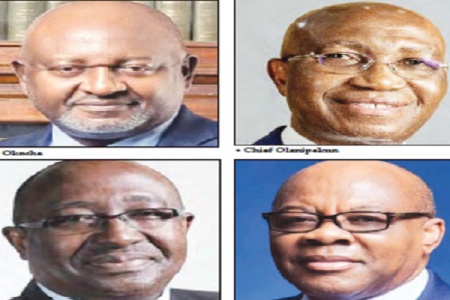
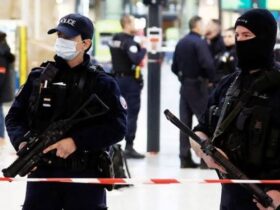


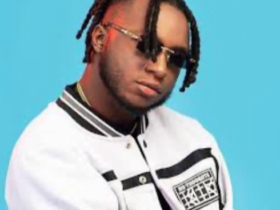
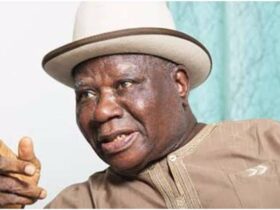

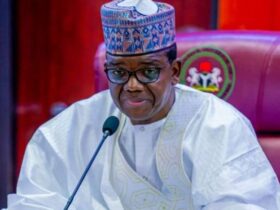
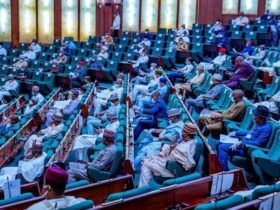
Leave a Reply